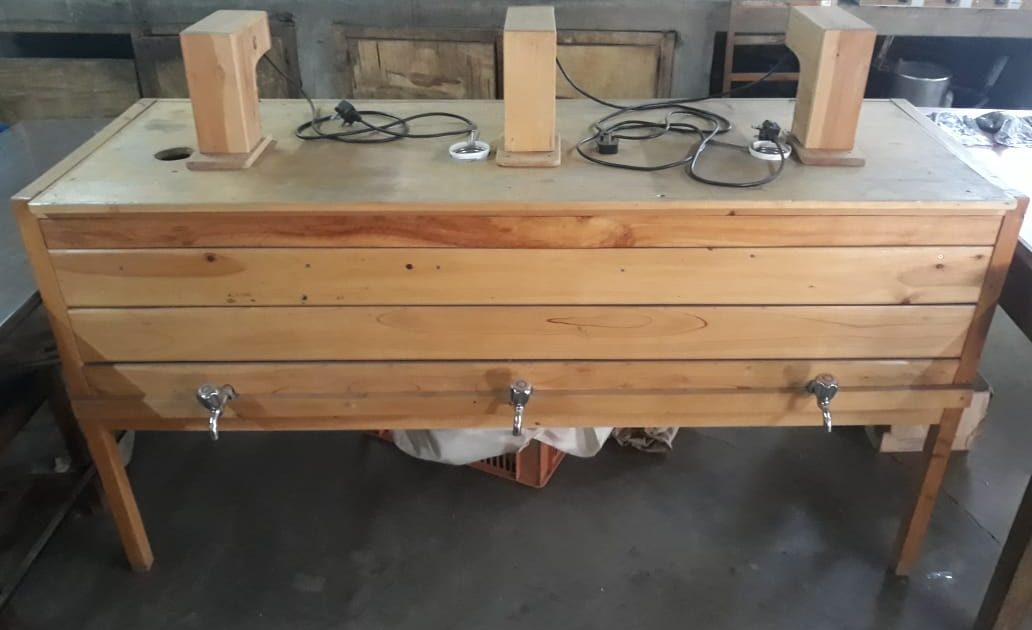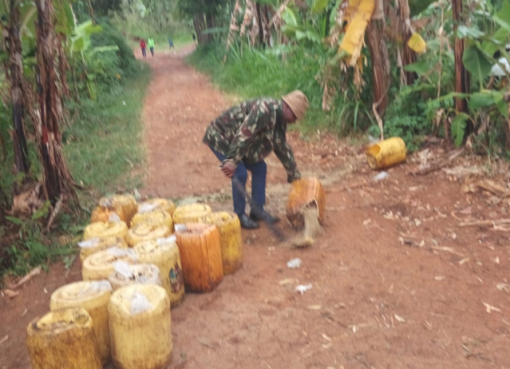Fishing remains one of the biggest economic activities in Lake Victoria as small and large scale traders jostle for a stake in the lucrative business.
This has seen a growth in the number of medium size fish processing plants along the shores of the lake producing enormous amount of waste.
Nile perch fish processing into chilled fish fillet for export along the shores of Lake Victoria generates large proportions of both solid and liquid wastes.
The exercise is estimated to generate solid waste as high as 50-80% of the original raw material posing a big challenge to the environment.
Experts have over the years grappled with how best to dispose of the matter to save the lake which is choking from pollution posing threat to human and aquatic life.
Out of a passion for the environment, Dennis Otieno a graduate of Aquatic Science from Egerton University has developed technologies to convert the fish waste into a chain of products offering a solution to the environmental challenge.
Borrowing from his University undergraduate project, Otieno now extracts fish oils from Nile Perch waste to make a ray of products.
“I started this in college. It was part of my undergraduate project but back then I was extracting the oils from common cup fish from Lake Naivasha,” he said.
This earned him an internship at the Kenya Marine and Fisheries Research Institute (KMFRI) Kisumu where he honed his skills further.
“I saw a problem of fish waste and started thinking of how to close the gap in the fishery value chain and at the same time save the environment. We gave it both an environmental and business approach,” he said.
Using a locally invented machine which cost him Sh. 70, 000, Otieno together with his three colleagues embarked on the exercise while also trying to assess the quality of the product and production procedures.
The machine has three major components; the centrifuge or shaft, holding tank and release taps.
Omega three fish oils are extracted from the offal of Nile Perch fish species through a process known as wet rendering using an oil extractor machine.
It takes three days from the time of the waste collection point to make pure oil with extraction taking one day.
“Extraction takes one day because we do not have all the machines. We use gas to boil offal to get the fish oils,” he said.
According to Otieno, it takes about six hours to boil the offal to release the oils from the layers of the tissues.
The offal is fed into the machine where it is mixed with water and stirred at a very high speed for about ten minutes.
The centrifuge attached to the machine has taps which collect the oils after being separated from the water and the waste.
It is then drained into a holding tank where it is mixed with blended pineapple juice and stirred again at a high speed for about ten minutes before being put into the release tank.
“Blended pineapple juice is used to remove the fish smell from the oils. It is also used as an antioxidant to reduce free radicals. Free radicals make the shelf life of the oils short,” he explained.
Some of the products they make from the oils include omega three fatty acids.
The byproduct is used to make chicken feeds, fish scale flowers, gelatins and yellowish water-soluble proteins which are used in different applications, and are found in hides and skins like capsule cases, smokes and sausages wrappings.
His business, he said, has now attracted repeat customers increasing the demand for the oils.
“Currently we only produce when a client places an order. You know we are interns and this project has empowered us economically. We are aiming at being the leading producer of omega three fish oil, animal feeds, gelatin, and flowers,” he said.
Lack of finances, he added, was the biggest challenge hampering their efforts to scale up production.
Vincent Okello, one of the customers said the oils are good especially when applied on already cooked vegetables.
“After cooking my traditional vegetables, I take a spoonful of the oils and sprinkle them on it before having my meals,” he said.
According to Okello, Omega three fish oils add energy to the body and prevent cardiovascular diseases.
Others who have benefited from the venture include Dorothy Atieno who supplies fish wastes to Otieno.
Atieno who collects the waste from Obunga market said the purchases despite putting money into her pocket also help to keep the market clean.
“The waste was all over the place. We used to have run-ins with officials from public health and National Environmental Management Agency (NEMA) every now and then,” she said.
KMFRI Assistant Director and Research Scientist Dr. Chrispin Nyamweya lauded the concept saying plans were underway to certify the products to pave the way for mass production.
“We want to take these products to Kenya Bureau of Standards (KEBS) and all other agencies that certify food safety before the technology is given to industries to upscale it,” he said.
“The process, he added, was taking longer because KMFRI wanted to patent the process and secure copyright for the developers”.
By Faith Walucho




